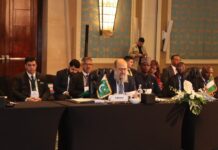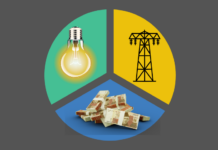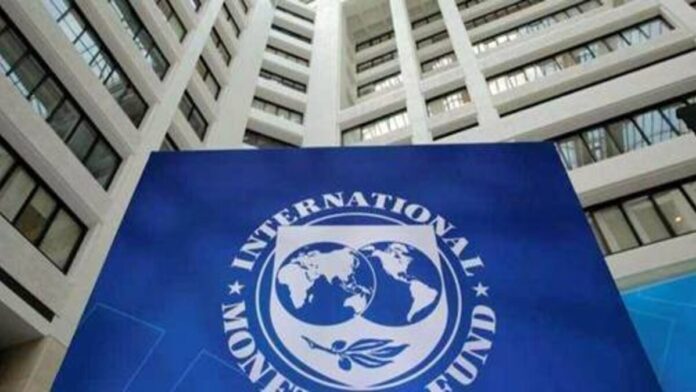As the multiparty coalition government is going to approach the International Monetary Fund (IMF) for revival of the derailed loan program, the international lender has asked Pakistan to take various stiff measures including ending fuel subsidy, exemptions while levying further taxes to get the next tranche of the loan program.
Talking to a group of journalists in the ministry of finance here on Wednesday, Finance Minister Miftah Ismail indicated that his government would meet the condition of the IMF regarding ending the fuel subsidy given by the previous government besides making other immediate arrangements. He, however, said that he would try to convince the Fund regarding taking tax measures as there are only two months ahead of the next budget.
He pledged to pursue policies that will meet the demands of the IMF. “I will go to the IMF and we will get it restored,” said Ismail. “The government will do the required belt-tightening. We will get budget discipline back on track.”
While leaving for Washington to meet with IMF officials on Wednesday, he was hoping that the programme, which was renegotiated by former prime minister Imran Khan and ex-finance minister Shaukat Tarin — would resume once again.
He said that the IMF wanted from the present government to increase the prices of petroleum products as well as to impose taxes and petroleum levy, do away with the industrial amnesty scheme, reduce the circular debt of the power sector, increase electricity tariffs and fiscal savings. He said that the IMF has said that if these conditions are met, the program will be revived and added that he would try to persuade the IMF to revive the program and immediately release the next installment. He said that all the demands cannot be implemented at once but can be done gradually.
The IMF will be told that with two months left in the current financial year, imposing taxes would not be possible whereas an increase in the rate of personal income tax would not yield any increase in revenue. He said that personally he was not supportive of an increase in the tax rate. He said that withdrawal of the amnesty scheme is possible and the government has to increase the prices of petroleum products but any decision to this effect would be taken by the Prime Minister with minimal burden on the people..
“We are working on a workable plan to present before the IMF to at least ensure the release of the next tranche. Things would be clear once we sit on the table about the stalled program,” the minister said.
The negotiations with the IMF officials will continue until April 24 and the IMF will release the US dollar one billion tranche after successful talks. Governor State Bank of Pakistan Reza Baqar has been in Washington for talks with the IMF officials. Governor central bank will also attend the session of the World Bank’s steering committee.
The minister further said that along with the IMF officials, he would also meet representatives of the World Bank and finance ministers of Turkey, Saudi Arabia and an official of the Chinese finance ministry during the visit to the US.
He hoped since Prime Minister Shahbaz Sharif enjoys cordial relations with important countries like China and Saudi Arabia, the existing loans would be rolled over. He also was optimistic about bailout support from Pakistan’s friends.
Talking about the huge fuel subsidy extended by the previous government, the minister said the subsidy allowed for petrol for the months of May and June will cost Rs96 billion, and the government cannot bear this burden.
While taking the populist move of not taking tax on petrol and diesel, Imran Khan has put the Shehbaz Sharif-led government in trouble. Making petrol cheap is not a favor, it is the nation’s money through which they give subsidies,” the finance minister.
The finance minister said the government is giving a subsidy of Rs52 on diesel and Rs21 on petrol, and due to this, Rs68 were paid off from the national exchequer in terms of April’s subsidy.
“This is double the cost of administrative expenses of our civilian government. We cannot keep this up. The prime minister will have to take a decision in this regard,” he added.
The minister, however, rejected the possibility of passing on the actual fuel price in one go to avoid a major burden on the consumers.
Apart from fuel price adjustment, in order to reduce deficits, the minister further indicated a cut in PSDP by Rs100 billion. The government could reduce public sector development spending with other necessary budgetary discipline arrangements.
In reply to a query, the minister, interestingly, termed current devaluation of currency irrational saying that there must be a market monopoly behind the development. He said the dollar has a small market in the country and any major withdrawal of dollars may influence the currency status temporarily.
He expressed the hope that the value of the rupee would not slide further while the markets would also perform well.
Ismail said that the rupee was also devalued by Rs68 during the PTI regime and the ex-government took around $27 billion in external debt, an average of $9 billion per year, adding that the average of taking debt was just $1 billion in the PML-N government.
The finance minister said the PML-N had left the growth rate at 6.1%, which was reduced to 1.9% in the first year of the PTI government, and negative one per cent the following year.
He said the budget deficit during the five years of PML(N) tenure was recorded at Rs1,600 billion on average, however, during the current year, it has been recorded at Rs5,600 billion.
The finance minister said the tax collection has also been reduced from 11.1% of GDP to 9.1%, whereas the debt, which was Rs24,952.9 billion in the PML-N era, has now risen to Rs42,735 billion by December 2021.
Ismail said that during its tenure, the PTI government took more than Rs20,000 billion in debt.
He said that from first Prime Minister Liaqat Ali Khan to Nasir-ul-Mulk, the total debt was recorded at Rs25,000 billion whereas Imran khan took Rs20,000 billion debt in less than four years.
The finance minister said when PML-N took debt, the same was utilized to build energy plants, road infrastructure, dams, and education projects, however, no such utilization was witnessed when the PTI government was in power.
He said that exports increased only in value, not in quantity adding that imports too increased and are expected to reach a historic high of $75 billion this year.
The finance minister further said the current account deficit was also at $20 billion, whereas the reserves have gone down to $10.8 billion
He added that other than the power circular debt, the PTI regime has accumulated a gas circular debt of 1.5 trillion, adding that the government would constitute a commission to investigate the smuggling of urea.
Miftah said the fiscal deficit remained at Rs1,600 billion per annum on average during the government of the Pakistan Muslim League-Nawaz, while the Imran Khan-led government took this figure to around Rs5,600 billion.
He said the total debt of the country from 1947 to 2018 was Rs25,000 billion whereas the PTI government added at least Rs20,000 billion to the national debt in its three-and-half-year tenure.
Regarding power outages in the country, the minister said power plants with a capacity of 7,500 megawatts of electricity were shut down due to massive circular debt, lack of fuel, and the incompetence of the previous government.
Miftah also stated that the PTI also ruined the energy sector as before the PTI government’s tenure there was no circular debt pending in the gas sector. “But now the gas sector is faced with a circular debt of Rs1.5 trillion,” the minister said, adding that the SNGPL’s debt alone amounted to Rs200 billion.
























